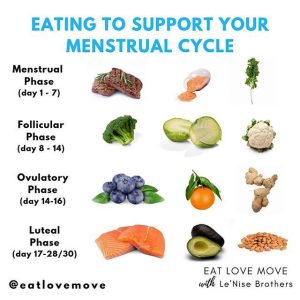Long-term fasting – how relevant is muscle and protein loss in the process

Is muscle and protein loss relevant to long-term fasting?
16 healthy, non-obese men participated in a 10-day study of long-term fasting according to the program of the Buchinger-Wilhelmi Clinics.
This included daily intake of a protein-free fasting supplement of 200-250 kcal/day in the form of juices and vegetable broths.
The test subjects also completed a three-hour daily moderate exercise program as part of the long-term fasting program.
The weight loss of an average of 5 kg (± 2 kg) resulted to 40 % from the breakdown of fat, to 25 % from the breakdown of proteins (from metabolically active tissues such as liver, kidneys, spleen, intestinal mucosa, heart and skeletal muscles) and to 35 % from water loss.
Protein-saving mechanisms kicked in after a few days and consisted mainly of using ketone bodies as fuel for the brain.
In our study, we were able to document that muscle involvement is probably less than has long been feared.
Muscles are rebuilt after fasting or long-term fasting, as are other organ tissues.
Not only was there no “muscle atrophy”, the performance of the muscles of the lower extremities actually improved significantly after fasting, and that of the remaining muscles was maintained.
As we have proven in our previous publications, the fasting program used at Buchinger Wilhelmi is a safe approach to the prevention of age-related diseases such as obesity, diabetes mellitus type 2 and other metabolic disorders as well as chronic inflammatory diseases and oxidative stress.
Nevertheless, caution is advised in older people with underweight and degenerative muscle loss.
Further studies are currently being conducted to evaluate the extent to which the various metabolically active tissues – u.a. Liver, kidney, intestinal mucosa as well as the musculature – are involved in the fasting-induced protein degradation and how quickly these protein structures and cells regenerate through new synthesis and from stem cells as soon as food is supplied again.
Protein catabolism, as documented by the negative nitrogen balance, decreased from day to day because of the onset of protein sparing mechanisms.
Here, a marker of muscle protein degradation, 3-methylhistidine, decreased from 5. Fasting day. Other markers of proteolysis such as GOT and creatinine confirm this observation.
After fasting and long-term fasting, when food is returned to the body, myostatin decreases significantly, promoting muscle mass rebuilding.
Of the other parameters measured in this study, noteworthy are: Physical and emotional well-being increased significantly during fasting, feelings of hunger decreased on the first.
Leptin levels decreased and other appetite-associated parameters did not change significantly.
Glucose levels also decreased and remained in the lower normal range.
Insulin levels decreased from 1. IGF-1, cortisol and gamma-GT also decreased, and protein oxidation decreased.
Blood Free Fatty Acid Levels Increased in the First Hours of Fasting, Followed by ß-Hydroxybutyric Acid.
Apelin, a substance that promotes mobilization of fat from muscle, increased massively.
Inflammatory parameters decreased temporarily, then returned to baseline levels, and even increased with food intake after the fast ended.
After three months a new examination was carried out. The general condition of the test subjects was good. Body weight was lower than at the start of fasting, and fat-free mass was correspondingly lower.
Levels that had temporarily increased due to fasting had returned to baseline levels.
Our 10-day fasting study of 16 healthy, normal weight men documented:
-
that already after a few hours, when the glycogen reserves in the liver are depleted, fat from the body’s own depots as well as ketone bodies are the main fuels of fasting metabolism – this leads to a metabolic switch: instead of dietary glucose, fat and ketone bodies are used,
The respective degree of participation of the different metabolically active tissues could not be determined in more detail, but various meaningful parameters indicate a lower participation of the musculature.
Muscle function and performance of the muscles were preserved and. improved even in the area of the lower extremities.
Claire Laurens, Franziska Grundler, Anthony Damiot, Isabelle Chery, Anne-Laure Le Maho, Alexandre Zahariev, Yvon Le Maho, Audrey Bergouignan, Guillemette Gauquelin-Koch, Chantal Simon, Stéphane Blanc, Françoise Wilhelmi de Toledo: “Is muscle and protein loss relevant in long-term fasting in healthy men?? A prospective trial on physiological adaptations”.
doi: 10.1002/jcsm.12766




